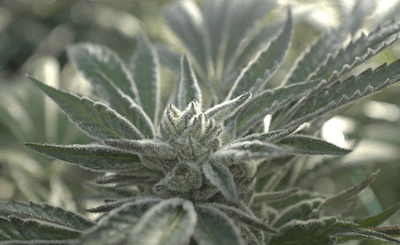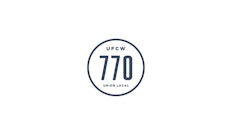
As COVID-19 continues to spread across the U.S., the implications are vast and complicated for business stakeholders and customers alike. International and domestic supply chains are feeling unprecedented economic pressure, and anyone monitoring the hourly news cycle is looking for clarity.
Kyle Kazan, CEO of Glass House Group in California, says that his background as a first responder is informing how he and his company are planning for uncertain times and an emergent public health crisis.
"What I would tell you is the first thing we do is we look at the data, strip out the emotion and say, ‘Okay, we have this wonderful supply chain, but it is worker-dependent. How do you keep people safe, so that they don't contract a virus that nobody on the planet had immunity to three months ago?’” Kazan says. At the company’s recently expanded 505,000 square feet of greenhouse space, employees are maintaining distance between one another. Creative and accounting department employees, like those at many other companies this week, have begun working remotely.
The retail side of the business is a bit more complicated. Kazan says he’s watching what’s happening in the broader retail segment of commercial industries in Italy, for example, where the COVID-19 crisis is far more developed and horrific than where the U.S. stands—as of now. Businesses are shuttered as public officials promote social distancing policies and self-quarantine measures across the country. Public decisions like that could materialize very quickly in the U.S.
“Even if [businesses don’t close en masse], which I think they will, our plan is always for the extreme,” Kazan says. “If that happens, or if it doesn't happen, then people are going to come in in a lot less numbers, but they're still going to want to use cannabis. So, we're moving very, very quickly to ramp up our delivery. We already have some delivery, and we are moving at lightning speed.”
"Our pivot right now is: Keep people safe, continue the supply chain and do the last mile. Bring the cannabis to them since they really can’t come to you or won’t come to you."
- Kyle Kazan, CEO of Glass House Group
The long-term is where this gets interesting, he says. One way of looking at times of crisis is through the lens of opportunity—a chance to revisit how private business do their work and engage the public. Kazan says a closer look at delivery best practices may lead to ramifications across the marketplace.
“If we're ramping up delivery, then we can do virtual [interfacing]. When people have questions, we can do virtual conversations with our budtenders who can help with the delivery,” he says. “So, that's the pivot. And quite frankly, we see it as: Many people, if we deliver right and we develop that relationship, most will never come back to the store or rarely will come back to the store. So, we see this as a wonderful opportunity to shift people to what they hadn't been thinking about, which is delivery.”
Kazan points to the general rise of delivery services elsewhere in the commercial economy as signs of things to come in the steadily evolving cannabis market.
Elsewhere in California, across Harborside’s four retail locations, the same trend is playing out. Delivery sales were up 5% this week, according to Pedro Fonseca, general manager of the company's San Jose location. He predicts that the rate will rise as more counties, like Alameda County (which includes Oakland), issue states of emergency and begin clamping down on public gatherings.
Ganja Goddess, a cannabis delivery service that operates in California (including in jurisdictions that have otherwise banned cannabis retail sales), has seen a 10% increase in sales each week for the past three weeks. As this particularly intense week comes to a close, CEO Zachary Pitts says that he expects something even higher than 10%.
“It’s not like a panic-buying [situation],” Pitts says. “But it's definitely, ‘We’re going to be hanging out at home, and cannabis is a great activity to do at home. It’s something that doesn’t really require going out or seeing lots of people.’”
Thursday, March 12, was the company's largest sales day of all time, to illustrate the point.
“I think a lot of people are anticipating staying home a lot right now,” he says.
At the office, Pitts says the Ganja Goddess team is reminding all employees of the company’s paid sick leave policies and encouraging workers to stay home when needed. It’s this interface between business and customer where much of the sensitive handling of this public health situation comes into play.
Similarly, at Redbud Roots Acme Provisioning Center in Michigan, the staff has set out wipes for customers to wipe down flower sniff jars.
“You don't want everybody putting their hands on the same thing and then putting their nose up to it, which is like licking the handrail when you're going on the subway,” Alex Leonowicz, COO and general counsel, says.
For Kazan and the rest of the Glass House team in California, it’s about the longer-term narrative playing out in the U.S. right now—both among the personal lives of the country’s citizens and among the businesses and customers involved in the cannabis marketplace.
"We as a society, all of us around the world are dealing with something that that's out of a movie,” he says. “I would say it's a shock to the consciousness as strong as 9/11. People are inundated by turning on every single news station and all you see is coronavirus, so if we can be part of making lives a little bit better, I think that’s our goal. Our pivot right now is: Keep people safe, continue the supply chain and do the last mile. Bring the cannabis to them since they really can’t come to you or won’t come to you.”
Senior Editor Patrick Williams contributed to this report.
























